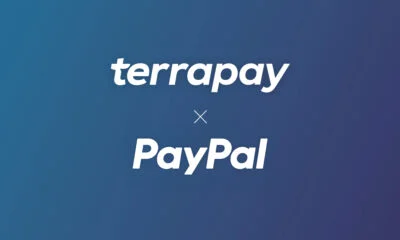How-To
How To Create A Website (A Beginners Guide)
From choosing the right domain name, to picking a reliable web hosting provider, this beginners guide shows you how to create the perfect website for your personal brand, business, or side hustle.

Whether you’re a small business owner advertising your product or service online, or a student looking to make some cash from a side hustle or two, knowing how to create your own website from scratch is an essential skill that you need to master.
Sure, the idea of building your own site can sound a little daunting, but trust us, it’s a lot easier than you think, and the skills you’ll learn along the way will give you a huge advantage over the competition. Here are just a few of the reasons why:
- Web design costs money. If you’re trying to grow a business, you’ll save a ton of cash that can be channeled into things like advertising and branding, especially when you consider the ongoing costs of modifying your site over time.
- You’ll be able to react quickly to market trends and stay ahead of the competition, because you’ll be able to update your site without needing to wait for a designer to help you.
- You’ll learn a valuable skillset that you might even be able to use to turn a decent profit.
If we’ve piqued your interest and you’re keen to get started, carry on reading this handy guide that will walk you through the process of creating a website from beginning to end:
Get Yourself A Domain Name
Before you do anything else, you’ll need a domain name for your site. There are literally hundreds of domain vendors out there, and they’re all pretty similar in terms of pricing and features.
Some companies offer free email accounts with domains, whereas others are more spartan in terms of added extras, but extremely cheap to use.
We’d recommend one of the big-name vendors like GoDaddy, Namecheap, Bluehost or HostGator for ease of use and competitive pricing.
Registering your domain is as simple as adding it to the cart and paying at the checkout. Once the order is processed, you’ll see your shiny new domain sitting in the admin area of your account.
Are Some Domains Better Than Others?
There’s a lot of misinformation out there about domain choice. SEO gurus used to be adamant that you had to get a .com domain, which ideally used your exact brand or site description in Its title. These days, most of that advice is out of date, and the domain you choose (and its ending) make very little difference to how your site will rank in Google. With that being said, if you can get a region specific domain, all the better.
Purchase Some Web Hosting
Once you have a domain name registered, you’ll need to get yourself some web hosting. When you buy web hosting, you’re essentially renting a space on a computer server. That computer server is online 24 hours a day, and when your visitors type your domain name into their address bar, or click on a link to your site, they’re directed to the server where all of the files are stored that make up your website.
When it comes to selecting web hosting, you have a couple of options: It’s entirely possible to buy a domain from one company and web hosting from another. However, for ease of use, beginners might want to purchase their domain and web hosting at the same time.
All of the companies mentioned above (GoDaddy, Namecheap, Bluehost and HostGator) offer good quality, cheap hosting as well as domain names, so purchasing both at the same time makes a great deal of sense.
Some Advice On Hosting Costs
Many hosting companies offer extremely cheap deals for the first year’s hosting, as the industry itself is extremely competitive in nature. Just make sure you read the small print and check the renewal price, or you may get a nasty surprise when you get auto-billed at year two.
Setting Up Your Domain & Hosting
These days, setting up your domain and hosting is a mostly automated process, and every major company has in-depth beginner guides to get you up and running. With that being said, there are a few things to remember:
- Make sure your domain works with and without the WWW. prefix. This is easy enough to manage in your control panel, and is often already in place.
- Check that your domain is “pointing” to your hosting package, so that when visitors use your domain, they’re directed to the right place. To do this, most companies’ control panels will have a setting listed under something like “name servers”. Here you’ll have an option to point the domain to your hosting.
- Make sure your domain and hosting are set to “auto renew”, if you intend to keep the site running after the first year.
- Check the privacy settings if you want to hide your domain’s registrant details from the public records.
Log In To The cPanel
cPanel is the administrative area of your web server, and although it sounds scary, it’s really just a simple interface where most tasks can be completed in a few mouse clicks. Usually, when you buy web hosting, you’ll get notified when your server space is ready with an email, a link to the cPanel area, and the log in details. This usually happens within 5 minutes after purchase.
Once you’re logged in to the cPanel, you’re ready to build your website!
Setup WordPress
WordPress is an open-source, completely free piece of software that allows you to quickly build a beautiful looking company website or blog. It’s by far the easiest way for beginners to setup a website and you can install it in just a few clicks.
To get started, you’ll need to be in the admin area of the cPanel. From there, find an icon named something like “Softaculous” or “Software” and you should find an option to install WordPress.
Select a domain, name your site, make a note of the login details and then click “install”. After a few moments, your website will be ready to go!
When your site is installed, navigate to YourDomainName.com/wp-admin.php. Enter your login details and you’ll be directed to the dashboard area of your new WordPress install. At that point, you’re ready to add content to your new site.
It really is that simple!
Customize Your Theme & Pages
Now, although your WordPress website should display correctly when you visit your domain name, you’ll probably be pretty disappointed with what you first see when you arrive at the site.
By default, WordPress is installed with a couple of demo pages and a very basic, vanilla looking theme. You’ll need to customize your site with a theme of your choice and of course, all of your own content and branding.
What Is A WordPress Theme?
WordPress itself is the background “engine” that runs your website, but the overall layout, design and branding is controlled by swappable templates called “Themes”. There are hundreds of themes to choose from, enabling you to customize your site to suit any type of blog, product or business imaginable.
Adding A Theme
To add a new theme to WordPress, all you need to do is look for the “appearance” tab on the left-hand side of the admin area, and navigate to “themes”.
From there, you’ll see the themes that you currently have installed, as well as an option in the top left corner to “add new”. Clicking this button will take you to the WordPress theme directory, where you have access to huge selection of great looking themes.
To install a theme, simply click “install”. Once a theme is installed, you’ll see a button appear inviting you to “activate” the theme. Click this, and you’re all set and ready to go.
Adding Pages
To get your site up and running, you’ll need to create pages for your content. At the bare minimum, you’ll need an “about” page, a “contact” page and a “home” page. To add these pages to your site, simply click on the “pages” tab on the left menu of the WordPress dashboard. This will reveal further options to add more pages to your site, or view and edit the pages that already exist.
Customizing Your Website
Once you have your theme, pages and content in place, it’s time to customize your site to your taste. To modify the look and feel of a WordPress site, head over to the “appearance” tab to the left of the dashboard, and click “customize” on the next menu. Doing so will reveal a wealth of different options and settings for altering your theme to your requirements.
WordPress itself can be as simple or as complicated as you wish, and there’s a virtually infinite range of plugins and add-ons that can turn your site into a fully featured online store, a hotel booking site and everything in-between.
Other Options For Building A Website
We’d always recommend taking the time to learn how to set up a WordPress website, just because it’s such a flexible and versatile option. We’re rapidly approaching the point where the majority of personal and business websites on the internet are running on the WordPress platform, so there’s a huge amount of knowledge and information out there to help you along the way, and a massive variety of themes and plugins to choose from.
With all of that being the case, there are a couple of obvious alternatives to WordPress, especially if you have more specific needs in mind:
WIX

WIX is very much a beginner option, and can’t compete with WordPress for customization options or versatility. Where WIX does score points is in its ease of use: When you sign up for WIX, you essentially don’t have to worry about domains, hosting, setting up the cPanel or any website software. Everything on WIX is done for you, and the drag and drop page builder is much easier to use than the WordPress dashboard.
Shopify

Shopify, as the name suggests, is aimed squarely at businesses looking to setup an online store. For a monthly fee, Shopify allows you to run a fully featured retail website, complete with custom themes, a shopping cart and much more besides.
If you plan on selling physical products online, then Shopify is probably a better choice than WordPress, as although plugins exist to turn WordPress into an online storefront, it can get complicated very quickly, especially if you’re a raw beginner.
Squarespace

Squarespace is much like WIX, in that it’s a fully featured website creation tool, doing away with software and hosting, and using a bespoke page builder and templating system instead. Squarespace is just as easy to use as WIX, but is aimed more towards personal and portfolio sites for creative types, priding itself more on aesthetics and visual beauty rather than outright versatility.
Weebly

Weebly blends elements of all of the above services to create a product that has the ease of use of WIX, the aesthetic appeal of Squarespace, and the online store elements of Shopify. There’s a range of great looking templates to choose from and the site builder is very easy to use.
Summing Up
This guide only scratches the surfaces of what’s possible with WordPress, but we hope it goes some way to demonstrating just how easy it is to get a site up and running quickly.
With a little time and perseverance, it’s possible to customize a WordPress install to fulfill any role or function imaginable, and for those of you that don’t feel confident tackling the entire installation process, it’s perfectly possible to use one of the other options like WIX or Squarespace to quickly and easily create a website and start your online business in less than a day.
Have you been wanting to create a website for your personal brand, business, or side hustle, but just didn’t know where to start? We hope this guide helped give you some insight on the entire process.
How-To
How To Watch Arabic Channels In USA, Canada & Australia
Arab families living in the United States, Canada, and Australia now have several options on how to watch their favorite Arabic TV channels.

Some options for watching Arabic channels in the United States, Canada, and Australia are suitable for cord-cutters, whose goal it is to get rid of cable and satellite TV and save as much money as possible. Other options are ideal for those who prefer a more traditional satellite TV experience. Regardless of which two groups you belong to, you’ll be able to satisfy your craving for Arabic TV with the help of this article.
Here’s a quick overview of the various options for watching Arabic channels in the USA, Canada, and Australia:
| Solution: | Best For: | Hardware Required? |
| Direct Channel Streaming | Casual viewers | No |
| VPN Services | Tech-savvy users wanting access to geo-restricted content | No |
| MySat | Australian viewers, especially in remote areas | Yes (Dish & Receiver) |
| ArabCast | Viewers wanting flexible, affordable streaming | No |
| JadooTV | Those interested in South Asian and Arabic content | Optional (Set-Top Box) |
| Reelplay Arabic IPTV Box | Users wanting an easy-to-use, dedicated solution | Yes (IPTV Box) |
| DISH Arabic TV | Users preferring traditional satellite TV | Yes (Dish & Receiver) |
| Sling TV Arabic | Cord-cutters using multiple devices | No |
| FilmOn | Budget-conscious viewers | No |
Use A VPN To Watch Geo-Restricted Arabic Channels
Many Arabic websites that offer content over the internet are geo-restricted outside the Arab world for legal reasons. This means that if you’re living in the USA, Canada, or Australia, you might encounter frustrating “this content is not available in your region” messages.
Fortunately, such geo-restrictions are easy to circumvent using a Virtual Private Network (VPN). A VPN allows you to connect to servers in different countries, making it appear as if you’re browsing from that location. By connecting to a server in an Arab country, you can unlock access to geo-restricted Arabic content.
My favorite VPN services that works great when it comes to unlocking geo-restricted Arabic channels are:
- NordVPN: Known for its extensive server network (including servers in the UAE) and top-notch security features. NordVPN offers excellent performance and user-friendly apps for various devices.
- ExpressVPN: Renowned for its fast speeds and ability to unblock a wide range of streaming services. ExpressVPN has servers in almost 100 countries, so it should easily unlock any Arabic content.
- CyberGhost: User-friendly with specialized streaming servers. CyberGhost operates servers in Egypt, Israel, Qatar, Saudi Arabia, the UAE, and other countries to provide ample options for accessing Arabic channels.
Recommended For: Tech-savvy users who want to access a wider range of Arabic content, including geo-restricted channels and streaming platforms.
MySat

MySat is an affordable satellite TV service that specializes in providing Arabic channels to viewers in Australia. With a wide selection of channels covering news, sports, entertainment, and religious programming, MySat can make it easy for you to stay connected to your cultural roots.
The Arabic package includes MTV, Al Jadeed, LBCI, Rotana, ART, MBC, DMC, and more channels. The starter kit costs just under $70, and it includes the physical satellite TV box and 3 months of TV subscription. After the first 3 months, TV subscription auto-renews at the regular subscription price, which is around $35.
For those living in more remote parts of Australia where high-speed internet might be inconsistent or unavailable, MySat can be an excellent solution. With the satellite service, you can enjoy your favorite Arabic channels without worrying about internet connectivity issues or buffering problems that often plague streaming services in rural areas.
Recommended For: Individuals seeking a satellite TV solution with a good variety of Arabic channels, especially those in remote locations.
ArabCast

With an impressive lineup of over 400 live Arabic channels, ArabCast offers a comprehensive selection of programming, including news, entertainment, sports, and more. One of ArabCast’s key attractions is its user-friendly approach. You can enjoy ArabCast on any device, including smartphones, tablets, and computers, with the added convenience of casting to your TV using Google Chromecast.
ArabCast offers a pay-as-you-go system with a generous trial period, and their subscriptions are among the most affordable in the market ($4.49 for 1 month, $24.99 for 6 months, or $44.99 for 12 months). There’s no long-term commitment required, giving you the freedom to adjust your viewing options as needed.
In addition to impressive content selection, ArabCast provides 24-hour support to assist you with any issues you might encounter, and there are over 15,000 happy customers who are ready to vouch for the service.
Recommended For: Arabic-speaking viewers who want a flexible, affordable streaming service with a wide range of channels and no need for special hardware.
JadooTV

For those who are interested in a broader range of international programming, particularly South Asian and Bollywood content alongside Arabic channels, JadooTV offers a compelling solution.
The flagship product is the Jadoo7 Android 9 Entertainment Hub, a set-top box priced at €199. This device transforms your TV into a smart entertainment center, offering access to apps, video-on-demand content, and TV series.
For those who prefer to use their existing smart TVs or connected devices, JadooTV offers smart TV apps. These apps are available for a wide range of platforms, including Samsung, Sony, Android TV, LG, Apple TV, Amazon Fire TV, and Roku devices. The smart TV app service is priced at €6.99 per month or €69.99 for an annual plan.
Lastly, for viewers on the go, JadooTV provides mobile apps for both iOS and Android devices. Priced at €5.99 per month or €59.99 per year (plus VAT), these apps offer access to live TV channels, a vast library of on-demand content, and a large selection of Bollywood movies.
Recommended For: Viewers who have a broad interest in international content, particularly those who enjoy South Asian programming and Bollywood movies alongside Arabic channels.
Reelplay Arabic IPTV Box

The Reelplay Arabic IPTV box is a compact device, measuring just 9cm x 9cm and 1.8cm, that provides access to a vast array of Arabic channels covering news, sports, entertainment, and more.
The box comes with impressive specifications, including a quad-core Cortex A53 processor, 2GB of RAM, and 16GB of internal storage. It supports dual-band Wi-Fi (2.4GHz/5.0GHz) and includes an Ethernet port for stable internet connectivity.
One of its standout features is the unique 7-day reeltime rewind function, which allows viewers to catch up on missed shows at their convenience. If you find the Reelplay Arabic IPTV box to be an attractive solution, then I recommend their special starter pack, which includes the box and 3 months of free Arabic service for new customers.
Recommended For: Arabic-speaking viewers who don’t have a smart TV capable of smoothly running modern streaming apps and are looking for a plug-and-play style solution that’s easy to set up and use.
DISH Arabic TV

DISH TV is one of the most popular providers of satellite TV in the United States, and the company has several packages with Arabic TV channels, including Arabic Elite Pack, Arabic Music Pack, Arabic IQRAA Pack, Arabic Noursat Pack, and Arabic Aghapy TV Pack. This is what’s included in each package.
We recommend Arabic Elite Pack because it includes a wide variety of TV channels, covering dramas, music, news, political updates, religious programming, and more. Arabic Elite Pack costs $34.99 a month with a two-year commitment. DISH TV users can customize their Arabic TV package with extra channels, including Willow Cricket HD, NDTV 24*7, France 24, and others.
New subscribers to DISH TV get professional installation for free, and it doesn’t matter how many TVs you want to connect to your satellite.
Recommended For: Those who are used to the satellite TV experience and are willing to pay a premium price for it.
Sling TV Arabic

Owned by Dish Network, Sling TV is a popular American over-the-top internet television service that you can watch using Roku, Apple TV, Samsung TV, LG TV, Android, iOS, Xbox One, Amazon FireTV, Azulle, Windows, Google Chrome, AndroidTV, Chromecast, and AirTV.
With Sling TV, you can watch over 130 Arabic TV channels broadcasting from 15 Middle Eastern countries. Some of the most popular Arabic TV channels available on Sling TV include MBC, Aljazeera, ART, LBCI, Aljadeed, Rotana, CBC, DMC, and Melody. For more information on the Arabic TV channels offered by Sling TV, read this channel guide. For Lebanese abroad, you’ll even be able to watch MTV Lebanon online.
Sling TV Arabic costs either $25 a month or $150 a year. Regardless of if you choose the monthly or annual subscription, you always get a 7-day free trial that allows you to evaluate the service without forcing you to make a commitment.
Recommended For: Cord-cutters who want to watch Arabic TV on many different devices.
FilmOn

FilmOn is an internet-based television provider with multiple Arabic channels, including Rotana Aflam, Al Jazeera, BBC Arabic TV, Dubai TV, AYAAT, and others. The service costs $19.95 per month or $199 per year (you get two months of free service).
FilmOn launched in 2009 in the United Kingdom and a year later in the United States. At the time of writing, it licenses several hundred channels and nearly 100,000 video-on-demand titles. Being an internet-based television provider, you can watch FilmOn on just about any device.
Recommended For: Budget-minded individuals who are looking for a cost-effective way to watch Arabic TV on the go.
Watch Arabic TV Channels Directly

Some Arabic TV channels, such as Alsumaria or Nessma stream their live TV programming on the internet, so you can simply tune in from any country and start watching.
If you’re fine with watching Arabic TV in a web browser and can live without extra features, this method of watching Arabic TV channels in the United States, Canada, and Australia is certainly worth trying, especially considering that it doesn’t cost anything at all.
Recommended For: Casual viewers who don’t often watch Arabic TV.
Also Read: PayPal In Lebanon: Everything You Need To Know
Bonus: If you’re into watching Arabic movies (especially those good old classics), then you can also check out Cinemoz, the fastest growing premium video on demand platform in the Arab World.

























